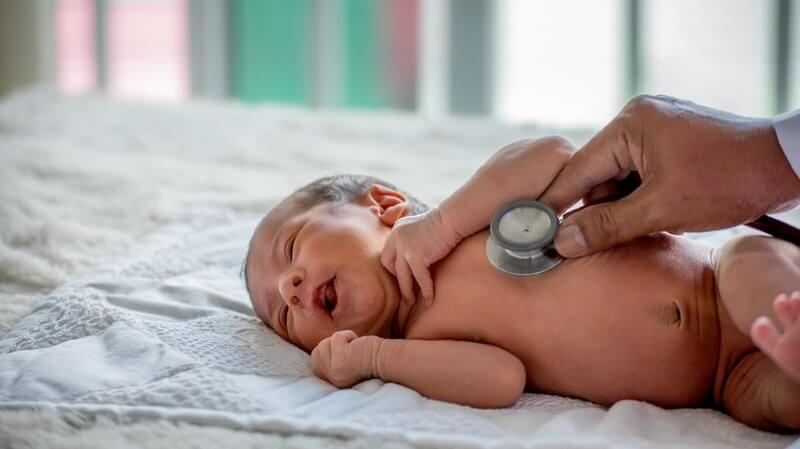Taking care of a newborn baby can have joyful moments — but it also comes with a lot of sleep-deprived stress. You love your baby and you want to do everything to protect them — while keeping them comfortable and safe. And, while this can feel like a tall order during regular times, it can feel especially overwhelming during the coronavirus pandemic. What can you do to keep your baby healthy? Are there any essential steps to make it easier?
Caring for Newborns During Coronavirus Pandemic
Although there are contradicting data regarding age groups at risk for coronavirus, the Centers for Disease Control and Prevention (CDC), states that babies who are 12 months of age or younger may be at a higher risk of severe illness from COVID-19. In fact, infants who have tested positive for the disease have required mechanical ventilation. To lower the risk of this happening to your child, there are several safety measures you can take:
1. Testing
This is recommended for all newborns born to women with either confirmed or suspected the novel coronavirus. This should be done regardless of whether there are signs of infections in the baby and should be done within 24 and 48 hours of being born, if possible.
2. Isolation
While the ideal situation would be for the newborn to remain with their mom as much as possible, if the mother is suspected to have COVID-19, care for the baby should be assigned to another family member while the mother self-isolates until she tests negative for the disease. If there are no alternate around-the-clock caregivers, the newborn should be placed in a temperature-controlled incubator in the mother’s room.
3. Place Barriers
Have all caregivers of the newborn wear face masks and wash their hands thoroughly for at least 30 seconds prior to tending to the baby. However, never place a face covering on any child two years of age or younger.
4. Protect Your Baby While Breastfeeding
While there is no data to suggest that COVID-19 could be transmitted through breastmilk, the close contact could make it easier for the mom to pass on the virus to her child. Therefore wear a face mask at all times while breastfeeding. If you opt to pump the breastmilk, sanitize the pumps regularly.
5. Do Not Allow Visitors
Having a new baby in the family gets a lot of people excited. Grandparents, aunts, uncles, cousins, and everyone in your family tree and social circle want to meet your baby. But, now is not the time to do it. Even if everyone feels fine, asymptomatic infection remains significantly high.
6. Limit Outings
Breathing fresh air is important. So if you want to do so with your baby, do so — as long as you’re visiting a park, lake, or beach where you know there will be plenty of open spaces so that you can stay as far away as possible from other individuals. That said, do not bring your baby to the grocery store or any other indoor location where there’s a high risk of walking too close to someone else.
7. Schedule Follow-Up Appointments
It’s understandable to be wary of visiting a doctor while this pandemic is going on. However, a baby’s physiology changes at a rapid pace during the first few weeks after birth. It is crucial to have the newborn’s pediatrician to perform follow-up examinations to ensure that their health is optimal. Discuss with your pediatrician which appointments are essential and which ones can be delayed.
If You’ve Just Had a Baby, OB-GYN Women’s Center Can Help
At OB-GYN Women’s Center, we aim to make all of our patients feel comfortable. And getting answers to all your questions is the first step in getting the treatment you need.
Contact us to schedule an appointment.


